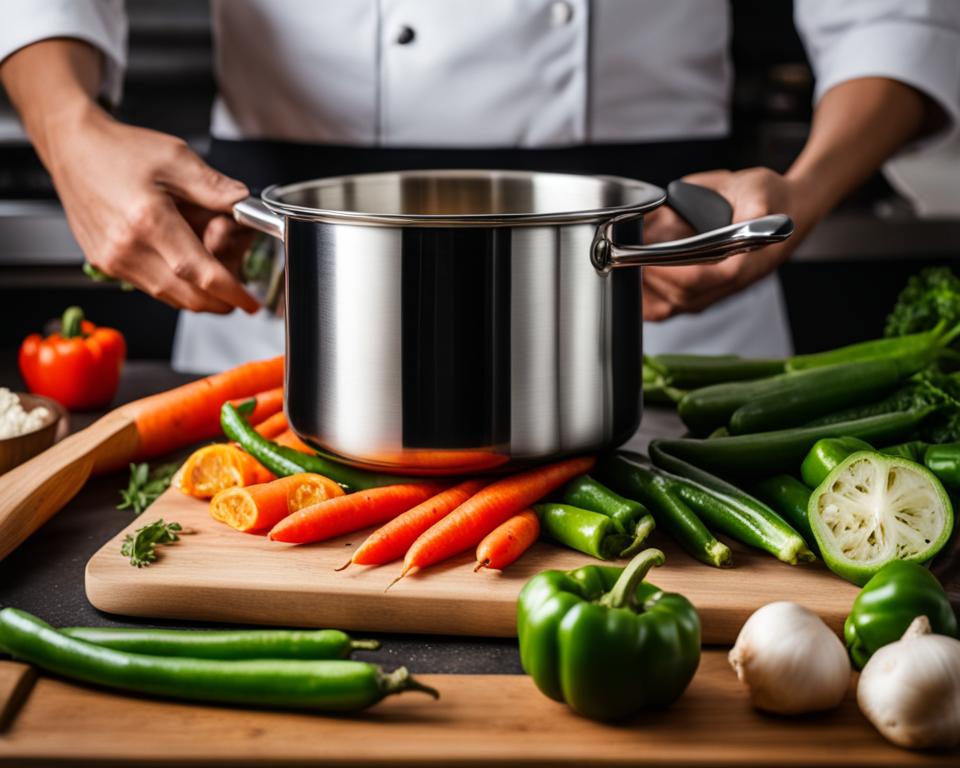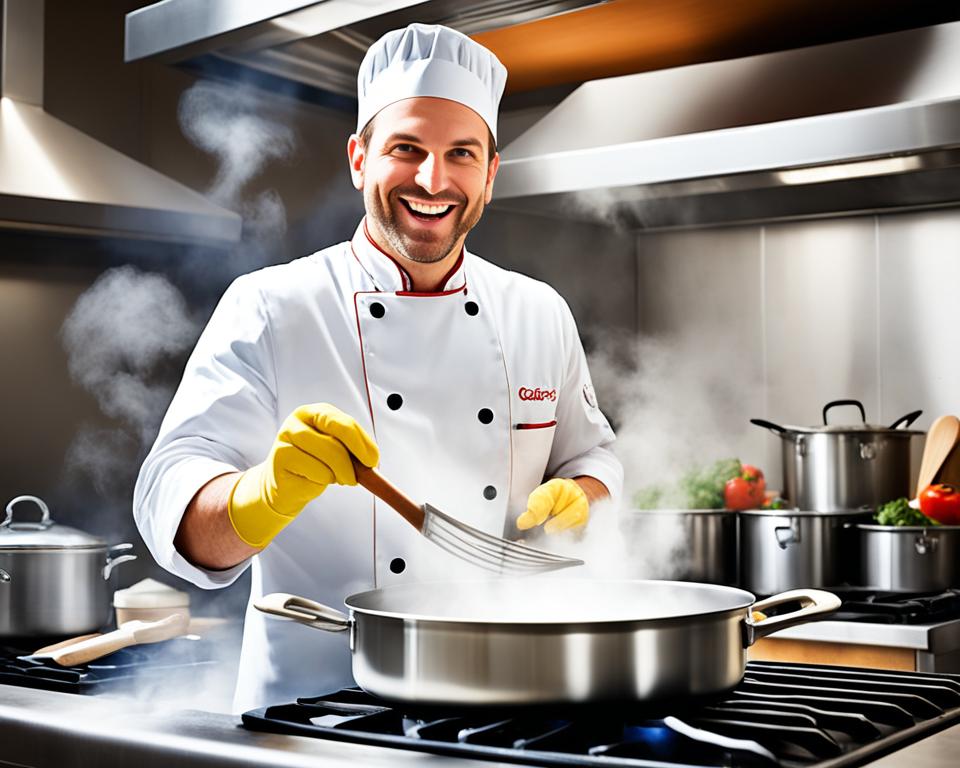What should you not use on stainless steel?
Stainless steel is a durable material that can withstand a lot of wear and tear, but there are still some things you should avoid using on it, as they can damage the surface.
Here is a list of things you should not use on stainless steel:
- Acids
- Alkalines
- Chlorine
- Ammonia
- Salt
- Abrasives
- Harsh detergents
If you are unsure about whether or not a particular product or material is safe to use on stainless steel, it is best to err on the side of caution and avoid using it.
For more information on how to clean and care for stainless steel, please see our article How to clean stainless steel.
What is stainless steel?
Stainless steel is a type of alloy that contains chromium, which gives it its corrosion-resistant properties. It is also known for its strength, durability, and versatility. Stainless steel is used in a wide variety of applications, including cookware, cutlery, appliances, and building materials.
What not to use on stainless steel
Stainless steel is a durable material that can withstand a variety of cleaning products and methods. However, there are some things that you should avoid using on stainless steel, as they can damage the surface or leave behind unsightly marks.
Here is a list of things that you should not use on stainless steel:
- Acids
- Alkalines
- Chlorine
- Ammonia
- Salt
- Abrasives
- Harsh detergents
If you are unsure about whether or not a particular product or method is safe to use on stainless steel, it is best to err on the side of caution and avoid using it.
For more information on how to clean and care for stainless steel, please see our article on How to Clean Stainless Steel.
What not to use on stainless steel
Acid cleaners, alkaline cleaners, chlorine bleach, ammonia, salt, abrasives, and harsh detergents should not be used on stainless steel. These products can damage the surface of the steel, causing it to become pitted or corroded.
If you need to clean stainless steel, use a mild detergent and warm water. You can also use a vinegar and baking soda solution to remove tough stains. Be sure to rinse the stainless steel thoroughly after cleaning to remove any residue.
For more information on how to clean stainless steel, please see our article on how to clean stainless steel.
V. Alkalines
Alkalines, such as ammonia and bleach, can also damage stainless steel by etching the surface. This can cause the stainless steel to become dull and pitted.
If you must use an alkaline cleaner on stainless steel, be sure to dilute it with water and rinse the surface thoroughly afterwards.
Avoid using alkaline cleaners on stainless steel on a regular basis, as they can eventually damage the surface.
IX. Abrasives
Abrasives can scratch the surface of stainless steel, so it is important to avoid using them on this material. This includes things like scouring pads, steel wool, and sandpaper. If you need to clean a stainless steel surface, it is best to use a soft cloth or sponge with a mild detergent.
VII. Ammonia
Ammonia is a harsh chemical that can damage the finish on stainless steel. It can also cause the metal to rust. If you accidentally spill ammonia on stainless steel, rinse it off immediately with water.
IX. Abrasives
Abrasives can scratch the surface of stainless steel, so it is important to avoid using them on this material. This includes things like scouring pads, steel wool, and sandpaper. If you need to clean a stainless steel surface, it is best to use a mild detergent and a soft cloth or sponge.
IX. Abrasives
Abrasives, such as scouring pads, steel wool, and sandpaper, can scratch the surface of stainless steel, leaving it looking dull and damaged. If you must use an abrasive cleaner, be sure to use it sparingly and rinse the surface thoroughly afterwards.


